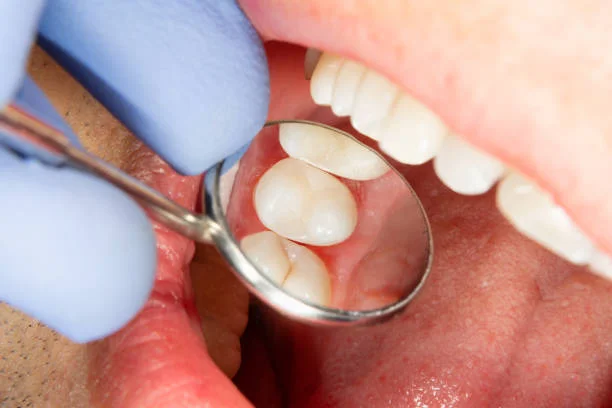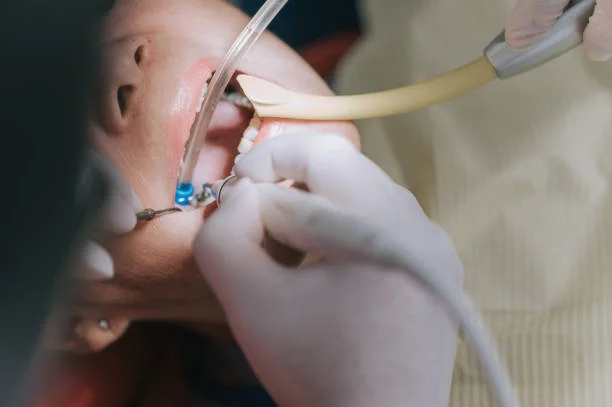Throbbing pain can radiate throughout your jaw, making it difficult to concentrate, eat, or even sleep. If you’ve been diagnosed with an infected tooth pulp, the root canal treatment from Supremia Dentistry might be the answer to regaining comfort and saving your smile.
While there is no single answer about root canal longevity, understanding the procedure and the factors influencing its longevity can provide valuable insight.
Understanding the Procedure of Root Canals
The human tooth possesses a complex internal structure. The outermost layer, enamel, functions as a highly mineralized protective shell. Beneath the enamel lies the dentin, a less mineralized yet still hard substance.
The core of the tooth contains the pulp, a delicate vascular and neural tissue responsible for tooth development and sensation. Bacterial infiltration through the enamel and dentin can compromise the pulp, leading to inflammation and pain.
To save an infected tooth, a root canal treatment carefully removes the inflamed pulp. The dentist creates a small opening in the top of the tooth, then cleans and disinfects the narrow canals inside the roots where the pulp was. Then they seal these canals with a sealing material.
Finally, a restoration, like a crown or filling, is placed on the tooth to protect it and restore functionality.
How Long Can a Root Canal Last?
The good news is that root canals have a high success rate, with teeth potentially lasting for many years, even a lifetime, with proper care. However, several factors influence their longevity:
- Severity of Infection: Extensive damage or a complex root system can shorten a root canal’s lifespan.
- Quality of Treatment: A skilled dentist using advanced techniques and materials increases the success rate and longevity of the procedure.
- Restorative Work: Following a root canal, a crown is often recommended to strengthen the weakened tooth and prevent fractures. Teeth with crowns tend to last considerably longer.
- Oral Hygiene: Good brushing and flossing habits, along with regular dental checkups and cleanings, significantly extend the lifespan of a root canal tooth.
- Trauma: Physical blows to the face or teeth can damage a root canal and necessitate retreatment.
Factors to Consider
Here’s a table summarizing how different factors can impact how long a root canal can last:
Factor | Impact on Longevity |
Severity of Infection | Less severe infections generally lead to longer lifespans. |
Quality of Treatment | Skilled dentists using advanced techniques improve longevity. |
Restorative Work | Crowns significantly increase a root canal’s lifespan. |
Oral Hygiene | Good oral hygiene habits extend the lifespan of the root canal. |
Trauma | Trauma can damage the root canal and necessitate retreatment. |
Understanding Success Rates
Statistics paint a reassuring picture. Studies suggest that:
- Up to 98% of root canals are successful after one year.
- The success rate remains high at around 86% after ten years or more.
- Teeth with crowns following root canals can last an average of 20 years.
Living with Root Canal: What to Expect
After undergoing a root canal, it’s common to encounter temporary sensitivity or mild discomfort in the tooth that was treated. This is a typical reaction and typically fades away within a few days. Utilizing pain relievers can effectively alleviate any residual discomfort.
Here are some tips for adjusting to life after your root canal:
Stick to Soft Foods
During the initial days following treatment, consider consuming gentle foods such as yogurt, applesauce, or mashed potatoes. This aids in the comfortable healing of the treated tooth by minimizing undue pressure.
Practice Gentle Brushing
Maintain good oral hygiene by brushing your teeth twice and flossing daily. Be gentle around the treated tooth, especially in the initial days following the procedure.
Manage Sensitivity
Some patients experience temporary sensitivity to hot or cold after a root canal. Desensitizing toothpaste or rinsing with lukewarm salt water can alleviate this discomfort.
Schedule Follow-Up Appointments
Regular dental checkups and cleanings are crucial after a root canal. They allow your dentist to monitor the treated tooth and ensure optimal oral health.
Potential Alternatives to Root Canals
Here are two potential alternatives your dentist might discuss:
- Tooth Extraction: Severely damaged or infected teeth may require extraction. While this removes the problem tooth, it leaves a gap. Implants or bridges can restore both function and aesthetics.
- Antibiotics and Monitoring: For mild infections, your dentist might prescribe antibiotics to control the infection and closely monitor the tooth.
During your consultation, Supremia Dentistry will thoroughly examine your tooth, discuss the available options, and recommend the most suitable approach for your long-term oral health.
Taking Care of Your Smile: Preventive Measures to Avoid Root Canals
While root canals are a valuable tool for saving teeth, prevention is always better than cure. Here are some proactive steps you can take to minimize your risk of needing a root canal:
- Maintain Excellent Oral Hygiene: Brushing your teeth twice daily and flossing once a day removes plaque and bacteria, the primary culprits behind tooth decay and infections.
- Regular Dental Checkups and Cleanings: Schedule dental checkups and cleanings every six months. This allows your dentist to detect and address any potential issues early on before they escalate and require more complex procedures like root canals.
- Healthy Diet: Ditch sugary and acidic foods that can weaken your smile. Choose a balanced diet packed with fruits, veggies, and calcium to build strong, healthy teeth!
- Wear a Mouthguard: If you participate in contact sports or activities with a high risk of facial injuries, wear a mouthguard to protect your teeth from trauma.
By prioritizing these preventive measures, you can significantly reduce your risk of developing dental problems that might necessitate a root canal.
Supremia Dentistry: Your Partner in Dental Health
At Supremia Dentistry in Wake Forest, NC, Dr. Edmond Suh and his team are committed to providing the highest quality dental care in a compassionate and comfortable environment. Our state-of-the-art facility, combined with our dedication to innovation and patient satisfaction, sets us apart as a leader in dental excellence.
Whether you require root canal treatment, cosmetic enhancements, or routine preventive care, we are here to exceed your expectations and help you achieve a healthy, beautiful smile.
Schedule your consultation with us and experience the Supremia Dentistry difference! Don’t hesitate to contact us now!
Conclusion

Root canals are a valuable tool in preserving your natural teeth. Understanding the procedure, factors influencing its longevity, and prioritizing good oral hygiene can significantly extend the lifespan of your treated tooth, even if it is a front tooth or a back tooth.
With proper care, root canals can save your smile and allow you to enjoy a lifetime of pain-free chewing.
At Supremia Dentistry, we’re passionate about helping patients achieve optimal oral health. We leverage our expertise and advanced technology to deliver exceptional root canal treatments and comprehensive dental care.

